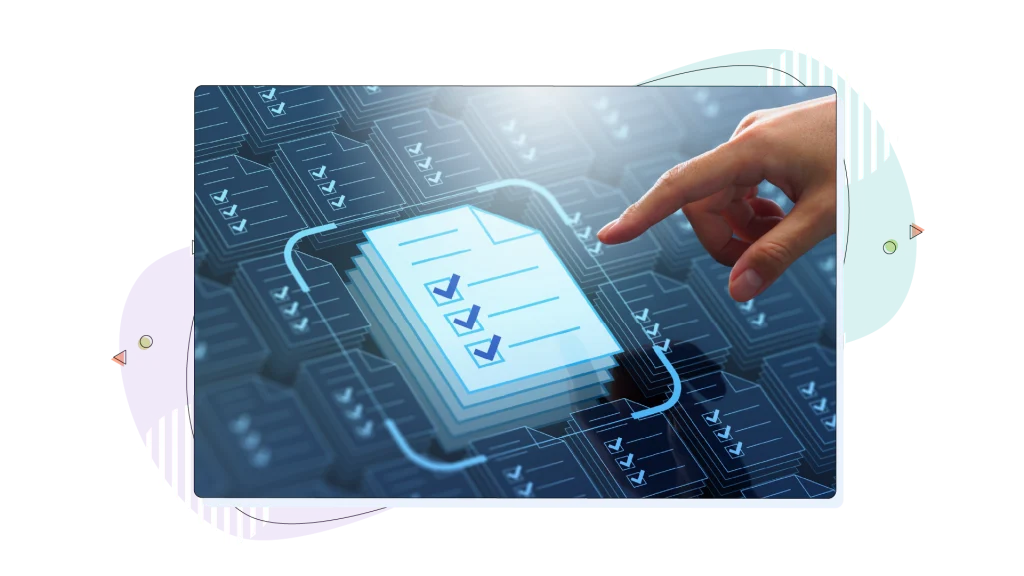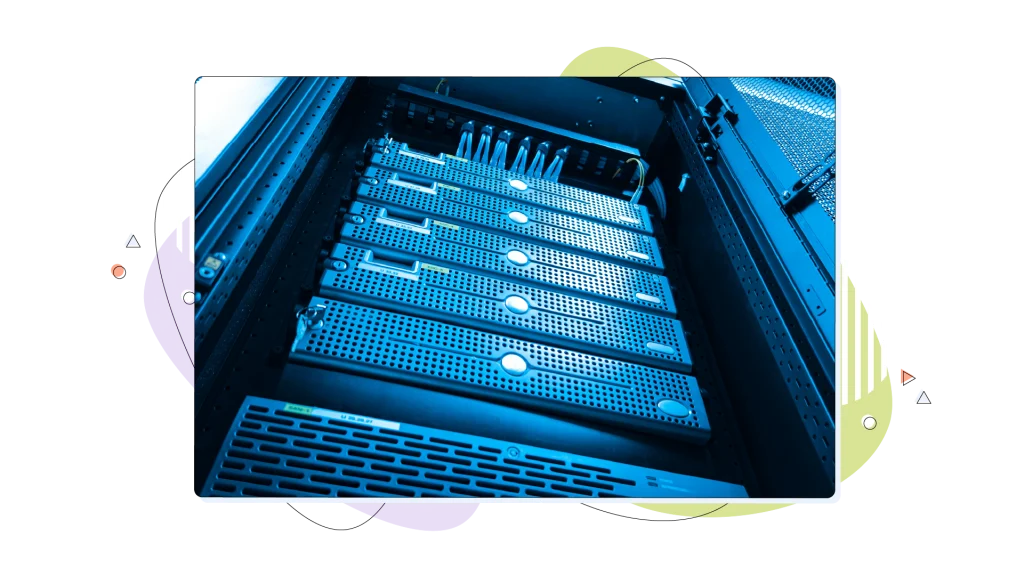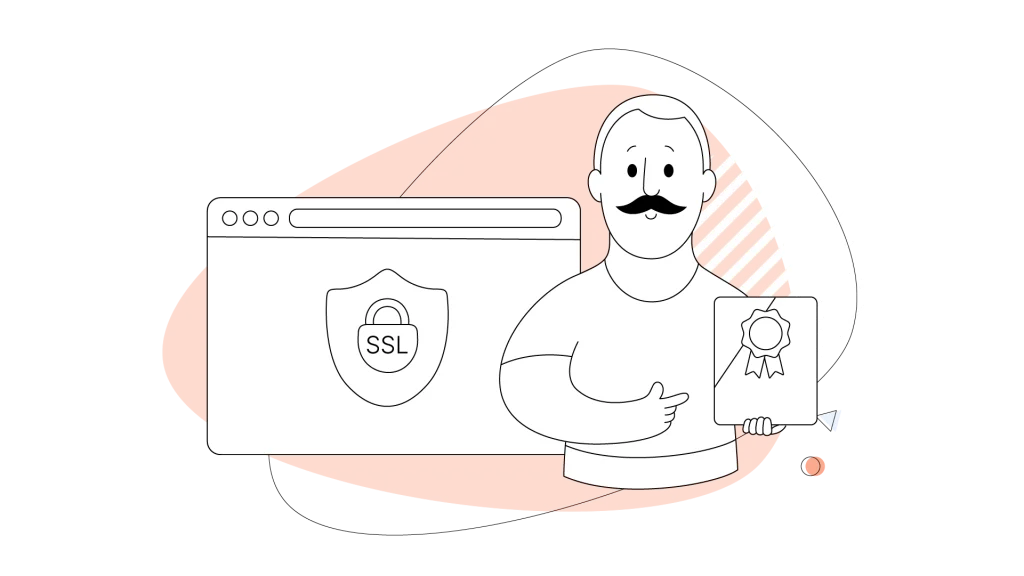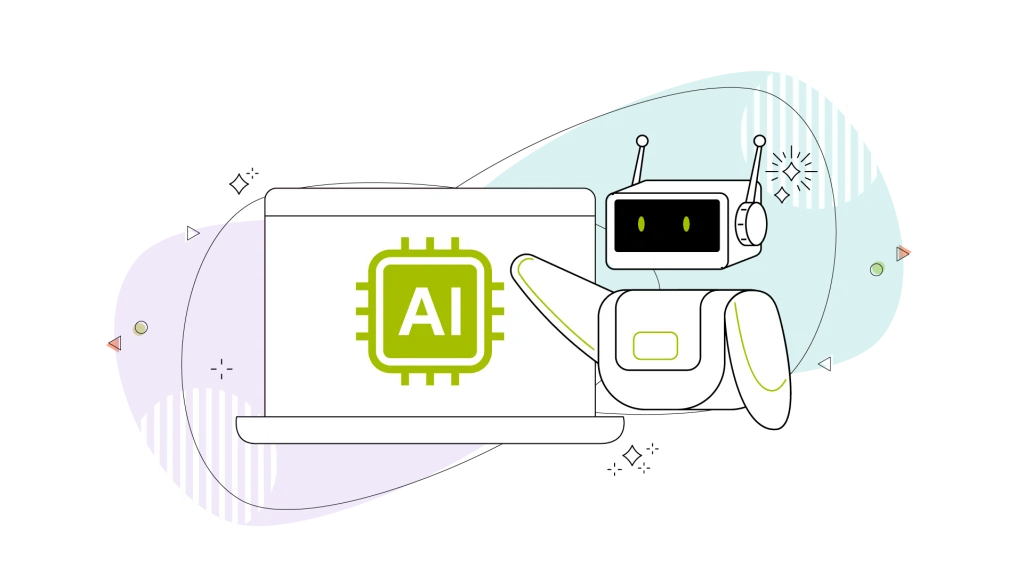Let’s start with some eye-opening facts. In 2023, Meta (formerly Facebook) violated the EU’s General Data Protection Regulation (GDPR), a regulation designed to protect sensitive data and provide a secure environment for website navigation.
The result? The company was fined a record €1.2 billion.
The healthcare sector has seen HIPAA penalties as high as $16 million USD for data breaches. In comparison, the average cost of a data breach in the United States is now over $10 million USD, according to recent reports.
Launching a website or application without a compliance strategy in place puts your company at risk.
From strict HIPAA guidelines for healthcare data and PCI DSS for payment processing, to GDPR and ISO, the penalties, legal headaches, and loss of customer trust can be business-ending.
Compliance isn’t just for “big business” because small companies are fined as well. This guide shows you how to safeguard your operations from day one, explaining what all these regulations mean.
- Understanding Server Compliance: The Basics
- What Is HIPAA & Who Needs It for Dedicated Servers
- GDPR Compliance for Dedicated Servers EU Customer Data Protection
- SOC 2 Compliance for Dedicated Servers: Trust Service Criteria Explained
- PCI DSS Compliance for Dedicated Servers: Protecting Payment Card Data
- ISO 27001 & Other Compliance Standards & Frameworks to Consider
- How to Choose a Compliant Dedicated Server Hosting Provider
- Compliance Best Practices & Action Steps for Server Owners
- Compliance Checklist & Quick Reference

Understanding Server Compliance: The Basics
What Is Server Compliance & Why Does It Matter?
Server compliance, specifically dedicated server compliance, means deploying your IT infrastructure in line with data protection laws and standards. This is your web host’s field, so it’s important to pick a reliable web hosting environment to house your website, as it is essentially your entire business.
These security requirements protect personal, health, and payment data—helping your organization avoid legal trouble and maintain customer confidence.
Join the HostPapa Affiliate Program
Hosting Infrastructure vs. Data Protection
The server environment forms the backbone of your data security. Shared hosting can increase risks as it lacks the isolation and complete control provided by a dedicated server.
With dedicated hosting, or even cloud hosting, you have full authority over security controls and data flows, which are vital for meeting stringent legal requirements.
The Real Costs of Non-Compliance
Failing to comply with regulations comes with massive downsides in some areas of the world:
- Financial penalties: GDPR fines can reach €20 million or 4% of annual global revenue, whichever is higher. HIPAA violations range from $100 to $50,000 per infraction (the exact amount depends on severity), and PCI DSS violations can lead to fines of $5,000—$100,000 per month.
- Reputational damage: 81% of consumers say they’d stop doing business with a company after a data breach.
- Operational disruption: You could lose payment processing, get blacklisted, or face lawsuits.
- Personal liability: Executives and decision-makers can be directly named in lawsuits or enforcement actions.

What Is HIPAA & Who Needs It for Dedicated Servers
HIPAA governs how health data is managed in the United States. It applies to any “covered entity” (hospitals, clinics, insurers) or “business associate” (companies handling protected health information (PHI), such as SaaS vendors or payment processors for healthcare clients).
Protected Health Information (PHI) is any patient-identifiable health data. Electronic PHI (ePHI) includes digital records, emails, cloud storage, and more.
Are Dedicated Servers HIPAA Compliant?
They can be—but only with the right configuration. Dedicated servers let you fully control your security settings, which makes them ideal for HIPAA compliance. Main benefits:
- Isolation: Your PHI isn’t mixed with other companies’ data.
- Custom security: Set granular access controls and monitoring.
Primary HIPAA Requirements for Dedicated Servers
- Business Associate Agreement (BAA): Your hosting provider must sign a BAA acknowledging their security obligations.
- Technical safeguards: Implement encryption (at rest and in transit), multi-factor authentication, audit logs, firewalls, backup/recovery, SSL/TLS certificates, and vulnerability scanning.
- Physical safeguards: Secure data centers with restricted access.
- Administrative safeguards: Policies, workforce training, and regular audits.
Statistic: In 2022, nearly 70% of reported healthcare breaches involved server platforms lacking strong encryption and audit controls.

GDPR Compliance for Dedicated Servers EU Customer Data Protection
The GDPR applies to any business serving EU customers—regardless of your company’s location. Its dominant principles are data minimization, integrity, and accountability. People have “the right to be forgotten” and the right to move their data between providers.
GDPR & Dedicated Hosting
- Data location matters: EU data must be stored in compliant locations.
- Data Processing Agreement (DPA): Required between your business and your hosting provider.
- Cross-border transfers: Special legal protections needed for data leaving the EU.
Technical Requirements for GDPR Compliance
- Encryption: Must meet standards like AES-256 for stored and transmitted data for guaranteed dedicated server security.
- Access control: Only authorized users should access personal data.
- Breach notification: Report breaches within 72 hours—no exceptions.
- Audit trails: Maintain logs to prove compliance.
- Role-based access control (RBAC): Strongly advised for larger organizations.
Statistic: In 2022, GDPR fines reached €2.9 billion across Europe, but eventually settled to €1.2 billion in 2024, with data breaches from misconfigured servers among the top causes.
SOC 2 Compliance for Dedicated Servers: Trust Service Criteria Explained
SOC 2 compliance is required for SaaS providers and any business storing or processing customer data in the cloud, often relying on managed services . The audit covers five trust pillars: Security, Availability, Processing Integrity, Confidentiality, and Privacy.
- SOC 2 Type I: Audits procedures at a point in time.
- SOC 2 Type II: Assesses ongoing effectiveness (preferred for hosting clients).
SOC 2 Requirements for Hosting Environments
- Security controls and monitoring
- Encryption and backups
- Access and authentication management
- Vendor oversight
- Continuous monitoring (not just once a year)
Achieving SOC 2 Compliance with Dedicated Servers
- Document all technical/administrative controls
- Work with a qualified auditor
- Stay up to date: SOC 2 guidelines are updated regularly
Statistic: Businesses cite compliance certifications like SOC 2 as a deciding factor when choosing a cloud hosting provider.

PCI DSS Compliance for Dedicated Servers: Protecting Payment Card Data
PCI DSS applies if your business processes, stores, or transmits cardholder data—no matter your company size. Failing PCI DSS can result in fines, lawsuits, and loss of payment processing privileges.
- Compliance levels: Determined by annual transaction volume.
- Cardholder Data Environment (CDE): Isolating payment systems prevents contamination of other environments.
PCI DSS 4.0 Requirements for Servers
- Network security/firewall setup
- Encryption of cardholder data
- Multi-factor authentication (MFA)
- Vulnerability scans and penetration tests
- Access control, least privilege principles, and anti-malware
Dedicated Servers & PCI Compliance
- VPS servers may not provide sufficient isolation for some merchants.
- Dedicated servers give you full control over secure configuration.
- Ensure quarterly ASV scans for ongoing compliance.

ISO 27001 & Other Compliance Standards & Frameworks to Consider
ISO 27001 is a global gold standard for information security management systems (ISMS). It helps companies identify and manage information risks holistically.
- ISMS requirements: Policies, continuous monitoring, and corrective action processes.
- Benefits: Increases customer trust and can streamline other compliance (SOC 2, GDPR, PCI).
Other Relevant Standards
- NIST SP 800-53: Widely used US federal standard for IT security.
- Industry-specific: FINRA (finance), FedRAMP (cloud services).
- State laws: Examples include the California Consumer Privacy Act (CCPA).
How to Choose a Compliant Dedicated Server Hosting Provider
Imperative Features to Look For
- Compliance certifications (SOC 2, ISO 27001, or HIPAA)
- BAA/DPA availability
- Data center location—you may need servers in a specific region for compliance
- Out-of-the-box security features (firewalls, DDoS protection, backups)
- 24/7 monitoring and customer support
Questions To Ask Potential Providers
- Where are your servers located?
- What certifications do you provide?
- Will you sign a BAA or DPA?
- What encryption standards do you follow?
- How do you handle security incidents?
- Do you offer managed and unmanaged service options?
HostPapa’s Compliance-Ready Dedicated Servers
We make sure our dedicated servers meet the latest regulatory standards. Our solutions are built for businesses that treat data security and compliance as top priorities, guaranteeing enhanced security. Want to assess your compliance needs?

Compliance Best Practices & Action Steps for Server Owners
Technical Configuration Checklist
- Install updates and security patches right away.
- Set strong, regularly changed passwords and use MFA.
- Configure your firewall—block unnecessary ports/services.
- Encrypt data both at rest and during transmission.
- Schedule automatic, off-site backups.
- Set up active monitoring and logging.
Operational Best Practices
- Train your team to recognize data risks.
- Audit and scan your environment at regular intervals.
- Keep thorough documentation.
- Collect only the data you need. Use retention policies.
- Prepare an incident response plan.
- Assign a Data Protection Officer (if required by law).
Common Compliance Mistakes To Avoid
- Assuming your hosting provider covers all compliance, many controls are your responsibility.
- Skipping software updates.
- Weak access controls.
- No backup plan for business-critical data.
- Poor record-keeping.
- Failing to schedule and complete regular audits.
Compliance Checklist & Quick Reference
| Framework | Who Needs It | Dominant Requirements | Penalties for Non-Compliance | Server Considerations |
| HIPAA | Healthcare, SaaS for health | BAA, Encryption, Access controls | $100–$50,000/violation | US data centers, BAA with host, audit logs |
| GDPR | Any company with EU customers | DPA, Breach reporting, Data subject rights | Up to €20M or 4% of revenue | EU hosting, DPA, role-based access |
| SOC 2 | SaaS, cloud storage, B2B apps | Controls for all 5 trust criteria | Loss of major clients | Certs, ongoing audits, and monitoring |
| PCI DSS | Any business processing cards | Segmentation, MFA, Quarterly scans | $5,000–$100,000/month | Isolated environment, quarterly ASV scans |
| ISO 27001 | All industries worldwide | ISMS, risk assessment, documentation | Contract loss, reputational damage | Certified, policy-driven hosting |
Conclusion
Server compliance should be a top priority before you launch your business online. Dedicated servers provide the control and physical security needed to navigate complex legal requirements—and avoid the high costs of non-compliance.
Make sure you select a provider who understands your industry, backs their promises with certifications, and is ready to help you secure your future.
Ready to bolster your business’s compliance?
Explore HostPapa’s Dedicated Server Solutions or contact HostPapa for compliance consultation.
FREQUENTLY ASKED QUESTIONS
Are dedicated servers automatically HIPAA compliant?
No. Only servers configured with appropriate security controls—and a signed Business Associate Agreement—can be considered HIPAA compliant.
What’s the difference between SOC 2 Type I and Type II?
Type I checks the design of security controls at a point in time; Type II checks how effective they are over a longer period.
Do I need GDPR compliance if I’m based in the US?
Yes—if you collect, process, or store data from EU citizens or residents, GDPR applies to you.
How much does compliant hosting cost? For a comprehensive overview of hosting options and what affects their pricing, visit Everything You Need to Know About Web Hosting in One Article!
Pricing varies, but expect to pay extra for managed security features and certifications. Dedicated, compliance-forward servers cost more than shared or VPS hosting, but provide much stronger protection.
Can shared hosting be compliant with HIPAA/PCI DSS?
It’s very hard to achieve full compliance with shared hosting, especially for HIPAA or PCI DSS, due to the lack of isolation and control.
What happens if I don’t comply with these regulations?
You risk fines, loss of business, lawsuits, breach notification costs, and significant damage to your reputation.
Do I need all these certifications?
Only if your industry or contracts require them—but it’s smart to aim for broader compliance; it helps win business and avoid issues.
How often should I conduct compliance audits?
At least annually, or whenever you make major changes to your infrastructure or business operations.




